Heidi and Vickie Show- Why Consider Roofing- PODCAST TRANSCRIPTION

Editor's note: The following is the transcript of The Heidi and Vickie Show. You can read the interview below or listen to the podcast here.
Heidi Ellsworth: Good morning, this is the Heidi and Vickie Show, and it is Saturday morning again. We're ready to share our week, share some thoughts, and just talk about roofing. This is Heidi, and ...
Vickie Sharples: This is Vickie.
Heidi Ellsworth: Vickie, you have a topic for us today, a really cool one.
Vickie Sharples: Well, you ... I wanted to ... Here's my topic. My topic is why do you want to be, why would you want to be a roofer, or why join the roofing industry? You and I just talk about the roofing industry like it's the greatest thing, and the greatest people, and all the nice things that we enjoy about it. It's like talking about our family, but we don't really explain why, deeply, more in detail, why you would want to join the roofing industry. Why would you want your kid to be a roofing contractor, and so I thought we could talk about that a little.
Heidi Ellsworth: It is the best industry, and I really love this topic. Yeah, I've got all kinds of things rolling in my mind to share today, but I would love for you to start because I always love to hear what you're thinking.
Vickie Sharples: I've been really thinking about this. You teased me before, about when I wake up in the middle of the night. I was thinking about trade associations.
Heidi Ellsworth: Yeah.
Vickie Sharples: Why would I want, is it my personal preference that I like it, a person. When you're young, I like a guy that's dirty from a hard day's work, and drives a truck. That's the kind of thing that I admire, so that might not be for everybody, so the roofing industry might not be for everybody, obviously, but who is it for? What kind of people fit in the roofing industry? I think, first of all, it has to be somebody that wants to work with their hands, so I know that there's jobs, and we can talk about that later, within the roofing industry, that are more administrative or not as risky, but let's talk about the risky ones first, that you're out in the sun or the cold every day, which might not appeal to somebody, but I would say someone like your husband, for example, and my husband, for example. They want to be outside working. My husband is not right in the head, even though he's not in the roofing industry, and neither is your husband, we have the types of people ...
Heidi Ellsworth: Although he does roof.
Vickie Sharples: Yeah, he has, but he hasn't been in, you know what I mean, as far as that's not his everyday job.
Heidi Ellsworth: Yeah.
Vickie Sharples: They like to work outside, and they like to work with their hands, so that would be something specific to being a technician, a superintendent, a foreman. It has to be somebody that wants to be in the field, and work with their hands, and not afraid to get dirty. That is what that person would be doing, and sometimes you've got to do it in uncomfortable situations. Besides just the weather, you have to do some things that some people might not be comfortable with, such as heights. Roof, whatever the roof is, it's up above. It's not like we're doing work on the ground, concrete work or landscaping work. It's up above so sometimes it's on a slant, so it's not always the ... It can be completely safe if you take care of yourself. It's not like we're asking you to bull ride, or work on the giant fishing boats where the waves toss you over. You can make it a safe job if you're sensible.
Heidi Ellsworth: I love the fact, how you say we're somewhat attracted to, and really to the construction industry, or to anything outside. I love that. Look who we're married to, I mean really, and then I grew up in the trades with my dad being a general contractor, so we were always out working on the jobs with dad and doing all that kind of stuff. You grew up with a dad, who's a mechanic, who was always out working with this hands.
Vickie Sharples: Yeah, he was an auto body man.
Heidi Ellsworth: Yeah.
Vickie Sharples: The fact that he wore a uniform every day, he was the hardest, smartest working man. I'm closing my door here, the neighbor's dog. He was the hardest ... I was proudest of him of anybody, so it just depends on ... Which is what I'm afraid of a little, with the roofing industry, is that we find today's roofers ... It was because their dad was a roofer, and so there's only ... I'm not afraid of that. I think that's amazing, but we better attract the people that their dads are roofers, or their moms weren't working for a roofing company, so that's why I was afraid.
Heidi Ellsworth: No, I think there's ... Sorry.
Vickie Sharples: Go ahead.
Heidi Ellsworth: No, I just want ... I'm so excited to agree with you, because I think, and you and I have had this conversation a lot, is that there was this age, when so many parents were like, "You have to go to college. You have to do this. You've got to become a doctor, an engineer," or whatever it may be. I know, from experience with my husband, he didn't want to do any of that. He wanted to be a forester. He wanted to chop down trees. He wanted to build ... He wanted to work physical labor, and so he went totally against family expectations, although his dad was a very hardworking man, but he was a great salesman, and so Tim just became his own person. I bet there's a lot of kids out there, who maybe have had expectations put on them, who would love the opportunity, like Tim did, to be in such a great industry, to work with their hands and be in such a close knit industry like roofing.
Vickie Sharples: Well you know, I'm sure there are, if they knew about it. That was what I was thinking also with the fact that our parents might have been in the roofing industry, then the next people that got attracted to it was because they were out of college, and they worked for their friends, whose parents were. Then you were saying we were attracted to people like that because basically that's who are parents were. We were indoctrinated already into respect people that are manual laborers, that actually work with their ... Manual labor sounds bad, but basically that's what it is, you are working with your hands. It's not a beneath you thing, and so I was thinking that, okay, so the person, we're not giving people, the kids, the opportunity sometimes today to see their other, older generation, and look to them to respect them. I know I might not be saying this correctly, but you can hear what I mean, right?
Heidi Ellsworth: Yeah. No, totally.
Vickie Sharples: We were exposed to it more, so it's more attractive to us. Then secondly, I think another trait that I was thinking of, besides the fact that you like to work with your hands is, I really think, with roofing, there's a feeling of accomplishment. You think of other jobs that you work in at a desk, and it's nice to get a project off your desk, but to actually see ... I shared a picture last week that showed the biggest, torn up, oh my God, it was the messiest situation. It was a detail with a gutter, and the shingles came down to it, and it was just filthy. It was a mess. You couldn't even tell what you were looking at. The guy did the after picture of it being smooth and clean. It was just beautiful, and I said, "This, to me, is what a roofer would want." We love to look at, the before and afters, the feeling of accomplishment. Besides wanting to work with your hands, that's another trait that I think is important, and then ...
Heidi Ellsworth: Just to that point, Vic, the part where you're saying, showing the beauty of the work and the craft of roofing. I didn't know this when I got into my career, but when I started working for Malarkey, I started seeing that. I started seeing how beautiful all the roofs were, and taking all these beauty shots, pictures, doing the marketing and stuff, and then when I started my own business working with roofing contractors, I realized what I loved so much was to be able to tell the story, to tell their story. To talk about a job from the beginning to the end, so writing these job profiles, getting the pictures, and then we were publishing mostly in magazines, but the roofing contractors would get back to me and the pride that they had was so amazing. I don't think, to this day I think that's why I love the Roofers Coffee Shop so much, and why I'm so blessed to be working with you here, because we tell the story. I think you're 100% right on that, just to go from something that is not protecting anything. The building's at risk, the families, the businesses, to this beautiful craft of roofing that now, all these families, businesses are safe. It's beautiful and all those kind of things. That is such a sense of accomplishment, and I think that's one of the things I know I do, and I know you do too. We love being able to share that, so you're right. That feeling of accomplishment, I love that.
Vickie Sharples: Yeah, that's a good reason to be in the roofing industry, to put on roofs.
Heidi Ellsworth: Yeah.
Vickie Sharples: If that's the segment of the roofing industry you want to be in. Another thing, I did a fun thing a couple years ago. I talked about all the different hats a roofing contractor wears, because it's not just about the manual labor. I featured one guy, was really hanging off a very steep roof, like a 24 and 12, and he was all ... I think he was in just a [inaudible 00:11:01] chair, that you're really sitting in a seat, hanging off. He was doing this and I said, "You've got to be a mountain climber," so that's one of the hats.
Heidi Ellsworth: Right.
Vickie Sharples: Not in this instance, and then there's this guy that I follow on Instagram, and I don't know much about him. He's a very curious person, but he only cares about restoring old, historic roofs, to where it's mostly with metal work and copper, and how he forms them and creates these details. He really makes beautiful drawings of them. I'm thinking, "This guy is just fixing up old, historic roofs," but really he's like an engineer and an architect, and drafting person. He comes up with the design before he does it. There's a school in Russia that I follow, that trains. That's all they do is train how to do this high tech roofing metal work. These things are works of art. They're jewels. The stuff they create, it's just beautiful to look at. I could try and show somebody else, go "Look at this detail, oh my God. It's the most beautiful thing." My friends would just stare at me.
Heidi Ellsworth: Right.
Vickie Sharples: See, if that's what you want to do, that's available. Another thing is finding leaks. My good old friend, Lefty, that was on the Roofers Coffee Shop, he was an influencer for a while. He said the best way you could learn about leaks is by tearing roofs off. That made so much sense to me, because you could find them. The guys that would go on the forum, they used to talk about, and take pictures of where the roof was leaking and where the leak actually generated from. It could be upwind, how the ventilation and the stuff goes ... It's just such a mystery. There's some people that, all they would do is repairs, that they would go in, and they'd be the key guy to find what the problem was and fix it. I had a guy out to my house the other day. Only when it rained a certain way, it would run where the patio, the roof, the wall met. He just came out there, took one look, went like this, done. I would have done it myself, frankly, but I don't know ... I hate to admit this, so you guys are getting a scoop right now. I'm deathly afraid of heights. I'm going to make it halfway up the ladder and then I go back down. I have trouble with stairs. I thought, "If I could just get up there." I was trying to do a product shot once, to show puddling water on a roof, but we have a little bit of a deck, so I literally made my husband get up there with the hose and take the pictures. I couldn't do it.
Heidi Ellsworth: I remember when we were on that roof in Portland, it was an outside terrace, and I was like, "Come here and look at this Vickie, come look at it," and you were like, "Go away." Yeah, I remember that. That's true, and it's funny that there's a lot of people like that, and they're still in roofing. They just figure out different ways of doing the roof.
Vickie Sharples: Yeah, so anyway, just think of all the different things that you love to do, and that could be your specialty. If you really want to create shapes out of a slate with the snips, or if you just want to be outside, and just working your muscles. You could be working on a commercial roofing project, laying out, either torching out a roof, or with a spray gun, or there's ... That's still, when you finish a big, ugly commercial roof, and it's beautiful, and clean and white. I like to take product shots, or share product shots of roofing, and generally the residential roofs get all the glory because they're pretty and interesting, and stuff, but there is a beauty to a pure white roof.
Heidi Ellsworth: Oh yeah.
Vickie Sharples: It's clean and beautiful, and kind of fun.
Heidi Ellsworth: Well, and I don't think a lot of people realize, and I think this is the thing that the roofing industry's been trying to do more and more. I know we're doing it, and RCA is trying to put this message out there, but roofing has changed a lot. A lot of people will think of, there's nothing wrong with it, but think of the smell of asphalt, think of the mopping with asphalt or the tar, and that ... We still do it, and still those are some of the longest lasting roofs out there. They're amazing, but there's all different types of roofing, so even if you're sitting there and listening to this, and thinking, "Well, I'm not really athletic. I don't know if that's a good fit." There are so many, you're just saying, there is so much detail work. You can be a roof technician, which goes in and finds the leaks, like Lefty, does the service and maintenance. I've talked to a couple of roof technicians, who are basically coming in and doing service and maintenance, or repairs, and they walk up, and it's a Spring inspection, and their team goes up there, cleans the roof off, cleans it off, does any repairs, maybe some coatings around certain flashings, and when they leave, it's beautiful. That's not an incredibly physical job, but it's a detail job that you get that same sense of accomplishment of seeing something that was a mess, and now it's beautiful again. That's another sense, and anybody can do that. It doesn't matter what your athletic ability is or how many muscles you have.
Vickie Sharples: Right, and that's another thing. If you don't want to be on the same job every day.
Heidi Ellsworth: Yeah.
Vickie Sharples: Every job is different, so you don't have the same monotony of anything. Yeah, so it's not for everybody, but this is important. This was something I never thought of. One of my, I think it was one of my 12 questions. I have a thing that I would ask people 12 different questions about the roofing industry. This guy, once a year, so this is you have job security if you learn the roofing industry, you'll always have a job. This guy would pick a place to go on vacation with his family for a month. Every year this roofer went somewhere for a month. When he got to that town, he went and got a job. He went to the local, found a couple roofing contractors and he worked so they could be on vacation in this fancy place. That's something.
Heidi Ellsworth: That's smart.
Vickie Sharples: It's true. Once you learn roofing, you can get a job anywhere.
Heidi Ellsworth: Especially now.
Vickie Sharples: Well yeah, now they're begging for anybody.
Heidi Ellsworth: Yeah.
Vickie Sharples: Even in the old days, if you were a good roofer, you could always find a job.
Heidi Ellsworth: Yep.
Vickie Sharples: That's something you can't take everywhere, and it's also something you can't take away from me right now. We're not losing our jobs to robots. I know someday, but there's still a lot of opportunity in our lifetime, for the rest of our lifetime, at least.
Heidi Ellsworth: Well, and you still need people to run the robots, right? There are a few out there. There's a few, and they're probably more machines than robots at this point, which is good, but someone has to put the roofing product, the rolls in. Somebody has to make sure it's running right, but it makes the jobs, again, a little more equal opportunity, that anybody can work on the roof. Anybody can work on the roof, and whether it's, like we talked about, running some of this machinery that's going on, doing coatings, or running the drones. You're right, there's a lot of technology, but it's never going to take away the human factor, because you have to have ... Even thinking about, Vickie, with Eagle view, when Eagle view first came in, and you were the one who really launched them out there through Roofers Coffee Shop, and when they ... Everyone's like, "Oh, they can't measure from the sky and they're taking jobs."
Vickie Sharples: You still have to go to the job anyway.
Heidi Ellsworth: Yeah, you still got to go to the job. You still got to do the inspection. You still got to do the core sample, so there's never going to be a time, I think, that technology totally takes the human part out of it, but I think it will offer more people the opportunity to enjoy it, and to be a part of it. Those young kids, who love to run robots, who are doing all the robotics in school, they may be the ones running those robots on the roof in 20 years.
Vickie Sharples: Right now, we kind of have that with the drones.
Heidi Ellsworth: Yeah.
Vickie Sharples: Yeah, all these contractors need the drones because, and you have to have a special license for that, so see that's a whole thing right there. That's very invaluable, and I'm telling you, what did we do without our drones? There is some of the best ... I'm looking at it from what I care about. I get the best pictures from those darn drones. Beautiful angles and pictures of roofs, and so yeah there's anything, but it's a great industry. It's an industry you can fall in love with.
Heidi Ellsworth: It is, and you and I were going to just ... I just want to touch on how many different ways there are to get into this industry. For example, for me, I, even though growing up in construction, I went to work as a marketing coordinator for Malarkey Roofing out of Portland Oregon, and learned roofing. It was, even though I had been on roofs with dad, but he was a general contractor, but what I really learned was how many different jobs, and different people it takes, and the pride that's associated with it. One of my favorite things, and I know one of your favorite things are plant tours, going on the plant tours, and seeing all the people, the plant workers, who are in there making the shingles, making the rolled roofing. They are so proud. It's just amazing. I would bring in pictures of completed jobs from the marketing side of it, and share them with everyone in the plant, to show them what their products they made look like. The pride in that is so huge, so just like you have the pride of being on the roof, there's also the pride of making the products that get roofed. There's just so many different places that you can work in the roofing industry.
Vickie Sharples: Well on the National Roofing Contractors Association, on their site, you can do roofing installation, which is what I spent most of my time talking about, and in addition to that there's jobs in contractor operations, so what they mean by this, I'm just going to read it, if it's okay.
Heidi Ellsworth: Yeah.
Vickie Sharples: As long ... Increasing demand for qualified workers such as construction management, project managers, safety professionals, consultants, design professionals, estimators, sales professionals, office administration and superintendent, field leadership, and warehouse maintenance personnel. Those are all things that you could do, with the exception of the project managers and superintendents don't have to get on the roof. Those are all things that you could do on the ground if you're afraid of heights.
Heidi Ellsworth: Yeah.
Vickie Sharples: Be an estimator, and you could learn a lot about design and the estimating process, especially on larger things, is very interesting. It's good. It's math. It's figuring out, and getting the design. There's some manufacturers that actually, you buy a roof as a package, so you have to work with them.
Heidi Ellsworth: Right.
Vickie Sharples: They make all the different pieces, parts, so that's a big job, and that's fun. That's not getting on the roof, but it's still roofing related, and you're in a roofing contractor, you work for them, or some aspect of it. Then they also put that there's jobs in manufacturing and distribution, and so that goes on and on. Sales professional, lab techs, fork lift, truck drivers, so one thing that I liked, and I have to say, if I had to pick one special thing of, special part of my roofing career. One of my favorite things was working for a distributor, and sitting at, working at the counter and talking to the guys as they came in. That is a job that's not sexy, but you could make good money. There's good money, all along in the roofing industry, even for the laborers. It's way above standard. It's not minimum wage.
Heidi Ellsworth: No.
Vickie Sharples: It's a good wage. The industry, as a whole, I think had it, for a laborer, like $40,000.00 a year. That's good money. That's not mentioned very much because it's hard work. Working in distribution, and they always need somebody, and there's many different aspects of it. You can help the people at the counter. Some of the wholesalers also offer estimating, different tapered systems. We're now helping all of our contractors in the field get online with ordering, dispatching the trucks. There was even, I thought of this, this morning. I know this is a funny story, but in California, especially in the heyday, when we were all track work, right?
Heidi Ellsworth: Right.
Vickie Sharples: All of the roofs were being roofed with tile. Tile has to be loaded special, it can't just be delivered. We actually ... There were companies that all they did was roof load tile, so they'd do the work out of a distributor. The contractors don't want to hire all these people to load the tile on the roof, and the loading the tile on the roof, the weight has to be distributed throughout the roof. You just can't take a pallet of roofing material, this stuff weighs 800 pounds a square, where shingles will weigh 250 pounds a square, so you could see. You can't just stick three pallets, 2,100 pounds, or one pallet, 2,100 pounds on one spot of the roof, it would fall through. You have to load the roofs. We had a contest once, with some people across to California. I threw this little party and we had a roof loading, because it was an actual career to get up and just deliver the materials, so without being a roofing contractor, delivering the materials on the roof is a job in California. The contest was to take one pallet, and then what you do is you throw these guys, four at a time, to the next guy and the next guy. That's how you load a roof off of a big, like a reach lift. You would take the pallet up, and then you would have the guys, and then the guys would move throughout the roof, throwing these stacks of roof tile that weigh 10 pounds a piece to each other, and then loading it neatly across the roof. I got to tell you, it's the most impressive thing. It's so impressive. You had to take one pallet and load it neatly into the other, and see how fast you could do it. That was an actual skills contest here in Southern California at one time, but they still do the same thing. Working for a distributor is a fun job. It's always fun because once again, I digress to you and I's personalities that we love everybody, but really it's a good job.
Heidi Ellsworth: It is and I just think there's so many ... When you think about all the sales people out there, all the manufacturers' reps, who are traveling around. Scientists, who are working in the labs of all these major, with new R&D and then thinking about all the mechanics, and people keeping the fleets going. I love that. It's kind of like, for me, it's like sitting at an airport. If I'm sitting on an airplane in the old days, and I'm looking out. I'm thinking, "What do all these people do?" There are so many people, so many jobs. It's like a little city at this airport. It's the same way in the roofing industry. Whatever, for me, it was marketing and sales, and you, even though you don't admit it, you are an amazing sales person, Vickie. Why did you want to get into roofing? I want to hear that. What got you into roofing?
Vickie Sharples: My boyfriend's mother, okay so this is so funny. My boyfriend's mother was the first female roofing salesman in probably the country. I'm 61 years old. I was 18 years old then, and so I went to work at the roofing manufacturer she worked at. Then we sold direct. We didn't sell through distributors, so we manufactured different roofing products, and so since we sold direct, I had hundred, couple hundred customers. I just met them all on the phone, and it was fun. I remember, yeah anyway, that's for another story. I could tell you stories, oh my gosh, I could tell such funny stories, but I learned so much, because they manufactured coatings and back then we called it coat process. They manufactured their own asphalt out of gas products. They manufactured their own shingles out of rag felt, and so the guys from the plant were always digging through the rags, because they were real rags, and bring us girls bathing suits. Yeah, that's how I got involved in it, and I just stayed in it because I knew the people, and I understood the complete product line. Then, I know this is really, but since I have no transparent, I have no secrets. I arranged to have truckloads of material delivered all over, so we would have, besides our own fleet of trucks, we would have so many deliveries, we had outside trucks. I would make friends with the truck drivers, and then here I am, this little girl, and I want to go meet my customers. On Saturdays, I would drive to the plant, get in the truck with the load, and go down and meet my distributors, because I was out in the field, and then if I was really good and I paid attention, I got to drive the diesel truck back, which was completely illegal but I learned how to drive the diesel trucks. Never a set of doubles, only before you put trailers, but I drove them on the 5 Freeway in California, when I was just a little kid, maybe I was 20. Can you imagine that? How stupid.
Heidi Ellsworth: No, you know that's the thing. When we grew up, we were doing all kinds of crazy things.
Vickie Sharples: I wanted to meet my friends in San Diego.
Heidi Ellsworth: Yeah, see I love that, and most people you talk to, unless it's a family business, most people you talk to get into roofing exactly like you say. I was looking for a job. I was working for a Catholic high school in Portland, Oregon, and I wanted to get out of non-profits, and I wanted to work in marketing. Had a friend who was working at Malarkey, and there you go. Now, that was 1994 and here I am today, with just this amazing career in roofing. Same with you, where you got started. You hear that a lot, but we want to spread that word to get more people, that it's not just a friend of a friend, or just a happenstance. We want people to look at it and go, "I want to be part of that. That is cool."
Vickie Sharples: Right. If you're listening to the broadcast, and you're not currently in the roofing industry, and the way you get into the roofing industry is through a friend, we're now your friend.
Heidi Ellsworth: Exactly.
Vickie Sharples: Call us, we'll talk to you for a couple minutes, and then we'll get you a couple phone numbers.
Heidi Ellsworth: Look at Lauren White, our reporter. She really now feels like she's getting to be part of the roofing industry because of us. She's, this one entry and what they say is once you're in, you never get out. It's a little like Hotel California in the roofing industry, no one ever leaves.
Vickie Sharples: My sister would ... My sister's the one who does all our social media, so I sent it to her, because you and I know how to do every single job in our company, but we can't, so we pick the ones. You do sales, and God knows I just yell at everybody. My job is to go, "What the hell is this?" Yeah, that's my whole job, I do that every day. My sister called me up, and all she's supposed to do is post the stuff, and then she would call me up here and there, and go, "Is this a word, or is this something you guys actually do?" I'd say, "Yeah, it's part of our roofing lingo," and then she's been doing it now, I think six or seven years for us, even though she did it for me before you and I, [inaudible 00:33:28] thing. She goes, "You know, all I do is look at roofs all day now." She's said that to me, because she ... By looking at all this stuff, and my enthusiasm for it, I think she looks at all these roofing related pictures in a new light. She looks at roofs all day.
Heidi Ellsworth: Yeah. I know. It just really sucks you in. I love that about it. We've been doing all these Zoom meetings, and National Women in Roofing has had these Zoom happy hours for women just to come in and talk about what's going on between work, and family, and Corona, and blah, blah. The other day, both Lauren White, so she's brand new to the roofing industry, like a year working for us, and Megan Ellsworth, whose not new, talk about family generational, both were on this same screen, and me and I'm like, "Look at that. Look at these young people coming in and now making friends," and so I guess that's where I wanted to leave this conversation is, not only is it great work, that it's financially awesome. It's really good financially. You can make it have a very good career, and make a great living for your family, but it's also, it's just good people. I don't know how else to say that, but when, Vickie, you and I think about it, we met because of roofing. We are best of friends. I think of all the friends we have out there. I have more friends in my roofing than I do in my overall community. I have some good friends, but roofing is where my family and my friends are, and I think that's another great reason to be part of this industry.
Vickie Sharples: That is really true. Some of our closet friends are in the roofing industry.
Heidi Ellsworth: Yeah.
Vickie Sharples: That's just how it happens, because nice people are friends with nice people.
Heidi Ellsworth: Yeah.
Vickie Sharples: We really have nice friend. Anyway, I guess that's all I really want ... I hope this was an inspiration to at least, if you're listening to this, to get somebody's kid. If they need a job, and then this could work into a life, not lifestyle, and I don't want to say career, because some people don't want a career, they just want a job, but it's still a good job, if that's all you want.
Heidi Ellsworth: Right, but it's a job that you'll probably do for the rest of your life and you'll have all kinds of opportunities to do different jobs as you get deeper into the industry.
Vickie Sharples: There's a few people that work at a crummy job, but they're still working in the roofing industry because they get a job anytime, because they're in the roofing industry.
Heidi Ellsworth: Right, that is so true.
Vickie Sharples: I look at some people, how are they still around, but that's because they're in the roofing industry and it's a really, a diamond in the rough.
Heidi Ellsworth: Yeah, it is, and it's a great place, so I think we should close this off, Vickie, with having everybody do a couple things. If you're listening to this, and either send this off to somebody you think might be interested in the roofing industry, or if you're not in the roofing industry, go to Roofers Coffee Shop, and one, you're going to ... Under our quiz, or our quiz section, there's a place in there that says, What Type of Roofer are You. It's a fun, it's fun. Vickie created it, so it has that whole sense of humor from Vickie, and you answer all these fun questions like, do you take more pictures of roofs or your family on vacation, that would be an example. It's a great question. At the end, it will tell you what kind of job might fit you. It's all for fun, but it's just a great way to get a feel. Then we also have our want to be in roofing, or want to be a roofer under the information section of Roofers Coffee Shop, and there is this awesome diagram with the pros and cons of roofing that Vickie also put together. It just will make you smile, so I would just say go check out. If you really want to learn about roofing, go to Roofers Coffee Shop, and take a spin, because that is where you're going to really see, I feel, the heart and soul of this industry. Like we say, Vickie, it's where the industry meets, right?
Vickie Sharples: Right, but let me add a couple more things to that before we say good night, good-bye, good afternoon. If you know somebody, we have a help wanted section, which is pleading for help, so you can go to classified ads. We also have vocational schools and training resources on the site, that you can find, and so there's lots of opportunities. We just need people.
Heidi Ellsworth: Yeah.
Vickie Sharples: The people that, unfortunately I have to say, we need the people that want to work hard, but working hard is the best feeling in the world.
Heidi Ellsworth: It is.
Vickie Sharples: There's no better feeling than working a good day's work.
Heidi Ellsworth: Yep, and every ... You can't say every person, but a majority of the people I know in roofing, no matter what jobs they have, they have an amazing work ethic and they are just really true, good, honest people. It's a great place to be.
Vickie Sharples: Okay, good talk. Good talk.
Heidi Ellsworth: Yeah, so next Saturday, Vickie, we're going to do the 12 questions.
Vickie Sharples: Yeah, that's going to be a good one.
Heidi Ellsworth: I know, so everyone, tune in, and we'll see you next week.
Vickie Sharples: Bye.
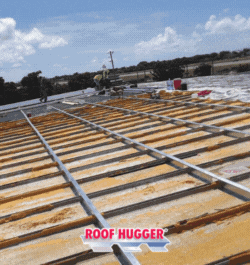












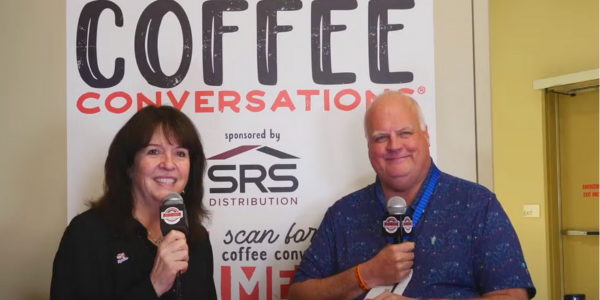
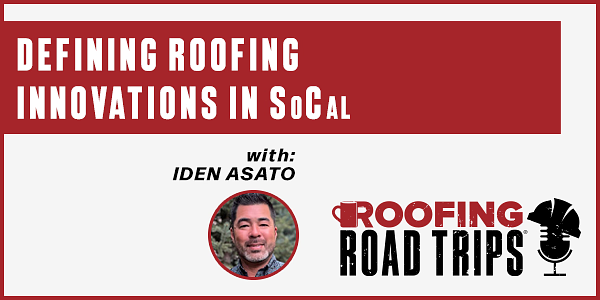
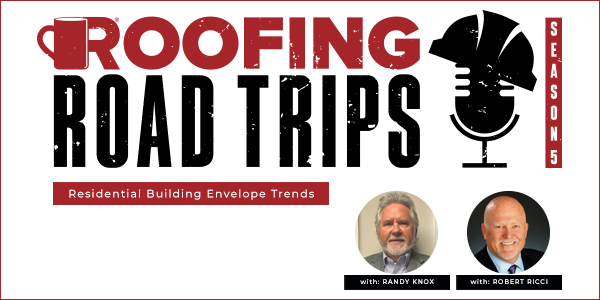



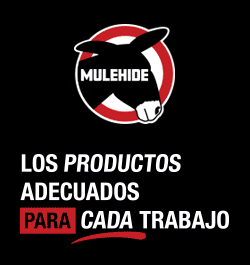


Comments
Leave a Reply
Have an account? Login to leave a comment!
Sign In